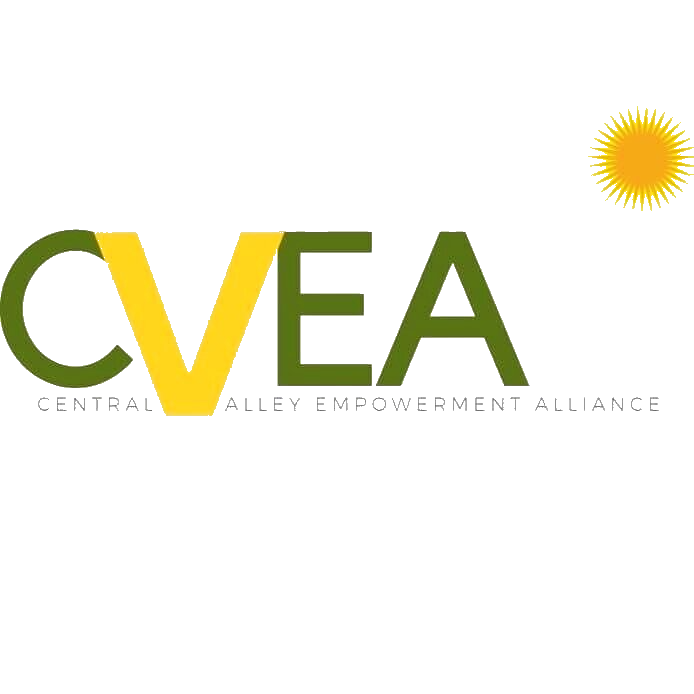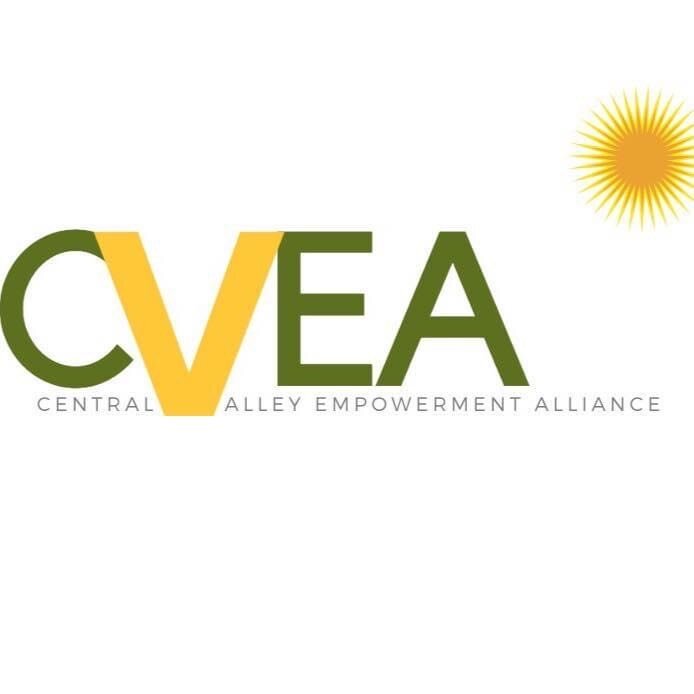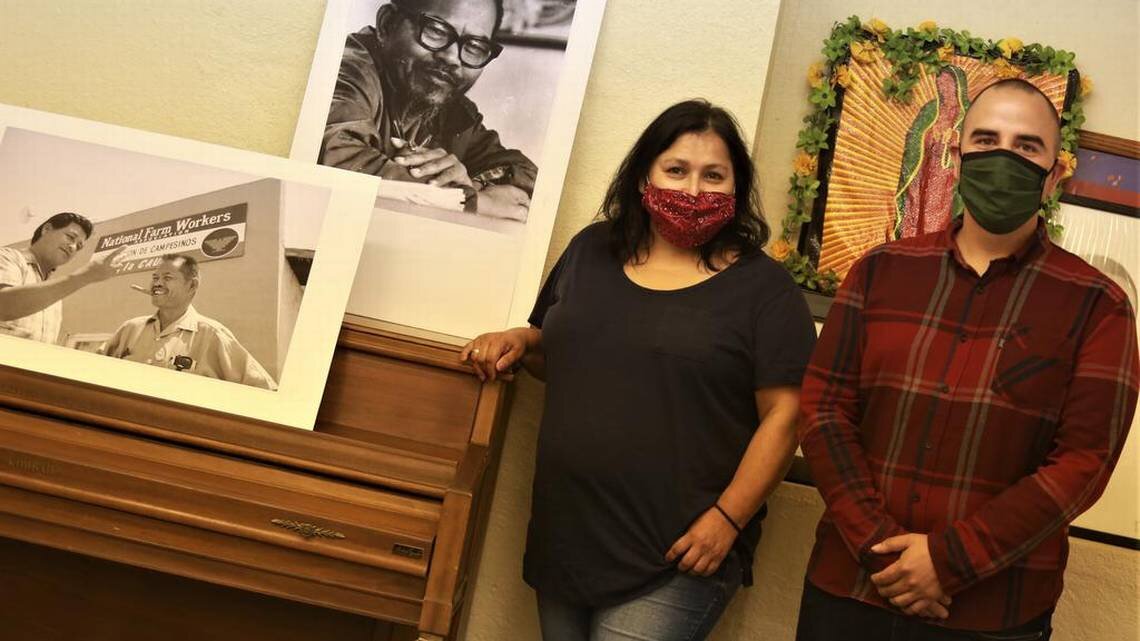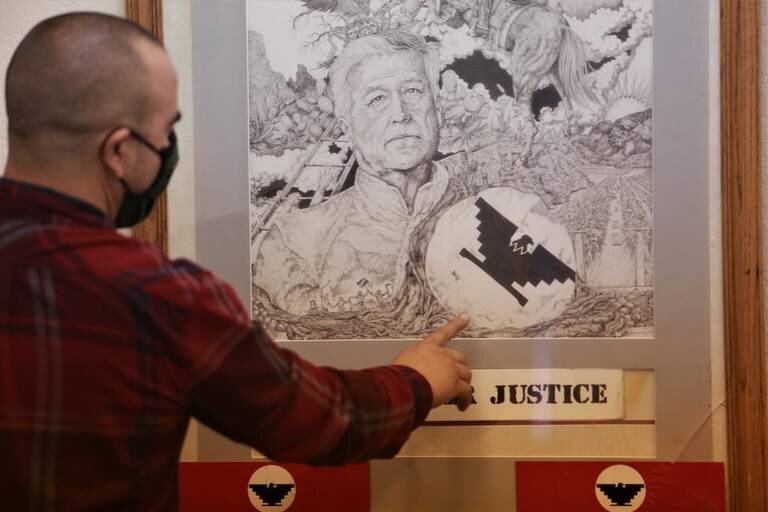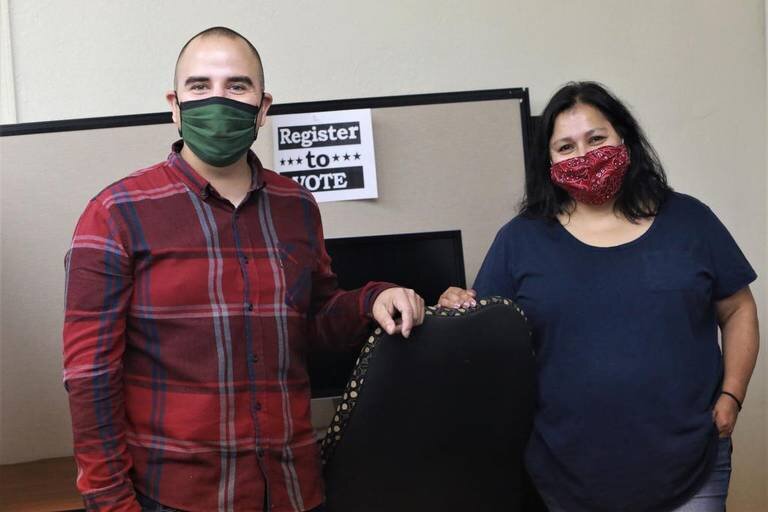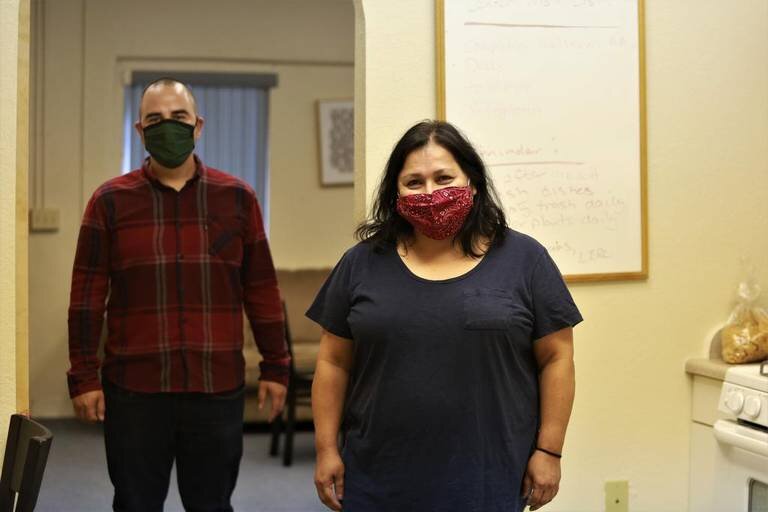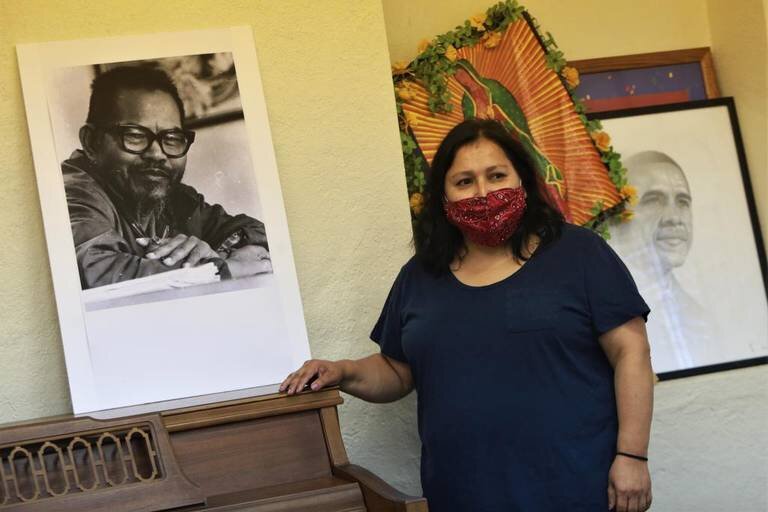A Resilient Community
By María G. Ortiz-Briones August 26, 2020 04:22 PM , Updated August 27, 2020 04:22 PM
POPLAR A Resilient Community
With a population of 2,500, you could say the Tulare County community of Poplar is so small that it could easily to be overlooked when it comes to government help in dealing with all the consequences of the current coronavirus pandemic.
That is why Mari Pérez-Ruíz and Arturo Rodríguez, both with the Central Valley Empowerment Alliance, are kept busy at the Larry Itliong Resource Center handing out food and needed supplies to the homeless and those on the verge of having no home. They also arrange for teachers to help students with at-distance learning for the upcoming school year.
The resource center at an old fire station opened its doors on June 15, but the alliance’s project had been in the works for a few years. The coronavirus pandemic hastened those plans to help a town where 45 percent of its souls battle with poverty, according to the 2010 U.S. Census.
The center is name after Larry Itliong, a Filipino-American labor organizer, who organized the West Coast agricultural workers and in 1965 walked off the farms of table-grape growers and demanded wages equal to the federal minimum wage in what became known as the Delano grape strike.
“We wanted to work in rural communities, and we wanted to lift the voices of the people who are from the community, who are instrumental in our movement, our farm labor movement. But their voice had been kind of silent,” said Pérez-Ruíz, adding that in Poplar, about 30 to 40 percent of the community are Filipino, with many of them not being aware “about Larry or his history and the role that he has played in the labor movement.”
“We were very purposeful,” Pérez-Ruíz said of getting together with the Filipino community, especially since the center was being operated by two “mexicanos.”
“We wanted to make sure that we create an inclusive community, that they’re welcome,” Pérez-Ruíz as she and Rodríguez showed the center to Vida en el Valle.
“We wanted to make sure that we create a space where people feel safe and welcomed and that we honor the history of this community,” said Pérez-Ruíz, alliance chair and founder, who has a bachelors degree in history and Spanish with a minor in political science and Chicano Studies from UC Davis.
Pérez-Ruíz also has a credential in Global Career Development Facilitation and trained as a grassroots economic and community development organizer by Industrials Areas Foundation.
Since the center opened, residents have been able to use the conference room for community meetings. Census officials have used the space to conduct training.
And the furniture – from computers to a piano – have been donated as well as some art and images of César Chévez with Larry Itliong that will soon spruce up the center.
“I think it’s important to recognize local history and lift the voices of those that have that deep heritage here,” Rodríguez said, adding that the Filipino movement and the farmworker movement are the same. “We were fighting for the same things and we were doing it together at one point. Our communities are still together.”
Rodríguez said Poplar still has probably the largest working Filipino farmworkers crew right now.
“So, I think we’re capturing a moment in time as well. As, you know, Larry Itliong lived down this road, a few miles that way. And with the history of Tulare County and the farmworker movement, I think is only appropriate for us to do this under that name for Larry Itliong.”
The resource center is housed inside the oldest building in Poplar and the last adobe building which was at one point used for a fire house. It was used by the Chamber of Commerce for a few years before it sat abandoned for almost 18 years.
“So, we brought life back into it,” said Rodríguez, who went to Porterville College and graduated in 2005 from a Psychiatric Technology Program, becoming a licensed psychiatric technician in 2006. He worked for the state for more than 10 years before he resigned and decided to return to Tulare County to make changes as a community activist.
The building is currently own by the Poplar Community Service District, which has a 10-year lease with the alliance. A community’s need
Pérez-Ruíz said they have a simple reason to open the center – the need was there even prior to the pandemic.
She said a group of community members knew they wanted a space because they saw things were happening in the community like in many other communities – bullying, domestic violence, homelessness, etc., before the pandemic hit.
“Our families are so resilient, and they’ve been operating with little or no resources. And we wanted to create this,” she said, adding the alliance did its research and found the building that has been vacant for a while.
Rodríguez said the resource center serves as a sanctuary place where community members can come together, network within their own systems without being afraid of contacting law enforcement, especially with the current anti-immigrant sentiment across the country and be able to get peer support.
Pérez-Ruíz said the alliance have been organizing for years, working on addressing different issues from homelessness to lack of affordable housing to bad labor practice in rural communities, particularly in Poplar, which depending on the farmworking season see its population ballon to 3,500.
Since the center opened in the middle of the pandemic, one of the things the center has been offering to community members is food distribution every Friday through the U.S Department of Agriculture. Pérez-Ruíz said thanks to community volunteers the center is able to organize a caravan to go pick up the pallets of food and distribute the items, noting that people come from all over the county – as far as Lindsay, Springville, Visalia, Earlimart to get a box of food.
“That’s how dire things are. And this is very much grassroots community led, you know, all of it,” Pérez-Ruíz. “This organization is primarily all volunteer.”
Community work, like the one being done by Pérez-Ruíz, Rodríguez and volunteers, is of great importance for communities like Poplar and many others throughout the Valley.
People need to be empowered, said Luisa Quezada, Tulare County community organizer for the Dolores Huerta Foundation, which engages with community members to make their voices heard.
“It’s very important because when you get together the people and you let them know about, their right is when you really empower them,” said Quezada, adding that there is a saying in Spanish that says ‘él que no sabe es como él que no ve,’ meaning that is a person doesn’t know how to do things is like they are blind.
“It is very important to empower the people so they’re secure and they know what they can ask for,” Quezada said. “In a lot of our communities, our farm workers are people that sometimes they don’t even know how to write, they don’t even know how to read. They don’t even know how have to sign a paper because they didn’t have the education where they’re coming from.”
Quezada said when you empower people, those people get involve and start to know the system whether that system is at a school district, local or state politics. A challenging time
Opening the center in the middle of the coronavirus pandemic has been difficult.
“It’s been a challenge because the need is so great, you know. But we have to be mindful of the space that we are occupying,” Pérez-Ruíz said in reference to the mandate to social distancing. “Our rural communities are not getting some of the PPE equipment, they may not be provided with that information and so forth.”
“So, we want to be mindful, you know, to try to keep them safe and keep ourselves safe. At the same time, we know that there’s a need,” she said.
Rodríguez said it was important to them to get the center going before the start of the school season because many of the school-aged children in Poplar don’t have access to broadband internet services or devices and they wanted to make those children a priority.
Pérez-Ruíz and Rodríguez said unfortunately those children attend a school district where the board members are primarily white, who live out of town in Porterville and the property owners are usually the bosses of the farmworkers and where even the teachers have low expectations from their own students.
“A lot of the kids are expected to become farmworkers, again, instead of addressing your true potential,” Rodríguez said, adding that growing up in Poplar and going to elementary school there he was never told he could go to college but instead was told many times throughout his school years that if he end up working as a forklift driver or work at the register at the Town & Country Market, he would be one of the ones who made it.
The 35-year-old said some of his teachers and the school principal were wonderful and loving and showed compassion to him, but “the reality is that we were never expected to be more than just farmworkers.”
Rodríguez said he is one of the few in Poplar and the first one in his family to end up going to college.
“That is that is a problem that exists here. We have a disconnect within the school system. Primarily, 99 percent of them are Latino or very close to a hundred percent. But yet the school board is just not reflective of that community,” Pérez-Ruíz said.
Those student in Poplar who are in high school are bused to Porterville, which makes their day longer because of another hour and a half of transportation, Rodríguez said.
He said from the time he went to school there to now, nothing has changed. “The only thing that stayed consistent is the lack of investment from the county,” Rodríguez said.
However, Pérez-Ruíz said they reached out to Supervisor Eddie Valero, introduced themselves and the work they were doing in Poplar and to ask for help as the school year was approaching. They knew the center was in need of computers for children to use.
The center received some donated computers that were pretty old as they still have floppy disks and were not functional, said Pérez-Ruiz, so they had to be recycled. Committed to the community
Pérez-Ruíz said one of the things she feel makes them very unique, is that they are approximately 100 percent all volunteer, “and it’s just people from the community trying to address today’s problems.”
Pérez-Ruíz and Rodríguez said the non-profit will submit applications for grants to help keep the doors open and pay the bills but can be a challenge too.
“But we’re very much committed. I think that community’s invested in and seen us succeed, they are participating. We had people come in and volunteer to help, like, clean the facility, you know, to keep an eye on the building during close hours,” she said. “I see the change that has happened since we opened.”
Pérez-Ruíz and Rodríguez said they recently just met with another Supervisor, Dennis Townsend who represent Poplar, and explained what services the center was bringing to the community and talked about what the needs were for the center to allow this to become very effective in a small community here.
When the Porterville Library burned down, Rodríguez said children in Poplar were left out without a safe place to use a computer or do homework or do their research.
Until Porterville rebuilds its library, Rodríguez said the center’s goal is to be that safe place for the farmworker community members.
“Because of the pandemic, put this sense of urgency to create a space for the children who are not allowed to go to school yet and probably won’t be allowed,” he said, adding that Poplar’s school is already falling behind and is probably one of the least performing school in the area. “Imagine now that they don’t have access to the Internet because they’re expected to do their homework online.”
“Our vision was there to do it, but once the pandemic came in, we were very direct and purposeful and we made our ask of the community to allow us to have the space to provide the services,” Pérez-Ruíz said, adding that parents in the community were worried about their children. “We need to do something to address it. We cannot wait until after the pandemic because we don’t know when it’s going to be over. But the need is happening now.”
“We’re talking about creating transformative, sustainable and permanent change in rural communities through the grassroots, you know, from the bottom up,” she said. “Talking to folks, they are the experts and they know what the need is and what the solutions are. So, we look at the community for solutions.”
Pérez-Ruíz said the center will a have Wi-Fi extender to help provide Wi-Fi to the surrounding community so that even during closed hours, families can park outside, and their students can do homework.
She said the center has two retired teachers who are committed to provide tutorial for the students.
Pérez-Ruíz said an option, once the computers arrive, is have two groups of five register for classes. The groups would rotate between inside and outside, while the teachers rotate among the groups.
She said they are also thinking about having teenagers tutor once they are done with their own schooling.
“We recognize that our capacity may be limited and even our space is limiting us, but we cannot do nothing,” Pérez-Ruíz said. “I’m working with the teachers to determine what will be like the best.”
“So, they will not miss so much of the school year, because we understand the challenges of rural communities,” she added. “Not only are we talking about the absence of the Internet or lack of computers. We are talking about families who are monolingual Spanish-speaking, who are possibly illiterate, can’t read in their own language, and how can they be expected to teach and be teachers to their kids?”
Rodríguez said the center started working with a Filipino teacher who taught in the Philippines. “We see this really developing into something, you know, very cultural rich, you know, just a model for a place for a community like ours in rural Tulare County,” Rodríguez said.
“We’re asking the impossible of our parents, you know, and even before the epidemic, it was very stressful,” Pérez-Ruíz said, adding those parents were worried about opportunities for their children, lack of employment opportunities in the area.
Pérez-Ruíz said they want the center to be a place where people feel comfortable and safe coming in.
“I don’t want to hear another story years from now about a little boy being told that he cannot be an astronaut or a teacher or something like that. I don’t want to hear little girls think that they could only be mothers, you know,” Pérez-Ruíz said. “So, for me it’s about offering opportunities, and experiences. I want them to come.
“Poplar is probably one of the most disadvantaged communities think you can find in our state,” Rodríguez said. “Most of us live below the poverty rate and have zero to no access to resources here, especially if you don’t have transportation.”
María G. Ortiz-Briones: 559-441-6782, @TuValleTuSalud
